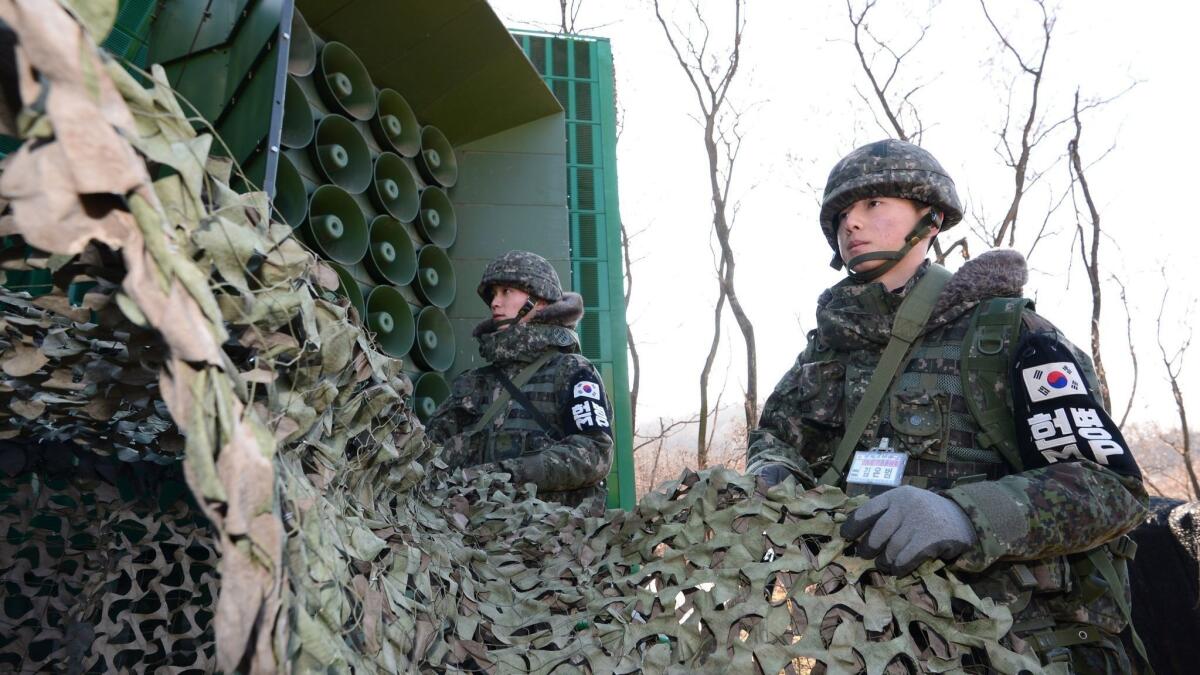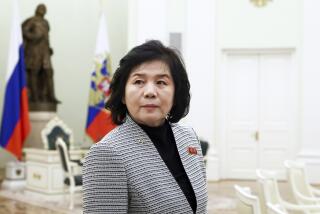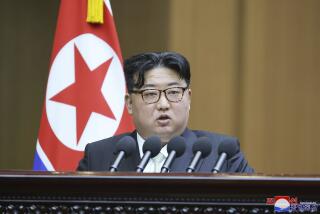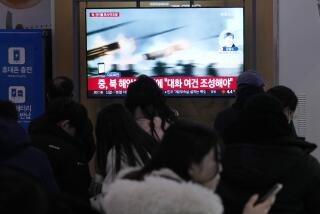Ahead of summit, South Korea says it will stop blasting K-Pop, propaganda along border with the North

The South Korean military has muffled its high-decibel propaganda loudspeakers along the highly fortified border with North Korea as a gesture of goodwill ahead of this week’s summit between the two nations’ leaders.
The speakers have in the past broadcast a mix of messages that can be heard for miles on the North’s side, including South Korean pop music and positive news about topics not generally available in the totalitarian state.
The devices made headlines in November when they blasted out positive details about the health of a North Korean soldier shot by his comrades during a daring defection. Their presence has in the past angered North Korean officials.
In a statement, the South Korean defense ministry said it ordered the speakers turned off Monday “to mitigate military tensions between North and South Korea and create an atmosphere of peaceful talks on the occasion of the 2018 Inter-Korean Summit.” It said it hoped both sides would halt any slander or propaganda activities.
Yonhap news agency, citing an unidentified government source, said that North Korea was believed to have turned off many of its propaganda broadcasts as well. Yonhap earlier reported that some North Korean broadcasts were sporadically heard in the South on Monday morning. South Korean defense officials said they couldn’t immediately confirm the status of the North’s broadcasts.
South Korean President Moon Jae-in is set to meet with his northern counterpart, Kim Jong Un, at only the third top-level summit between the two countries. Two previous meetings occurred in Pyongyang, the North’s capital, in 2000 and 2007.
The Korean summit is to take place at a South Korean building on the southern side of Panmunjom. This means that Kim must cross the border into South Korea in what would be the first such act by a North Korean leader since the end of the 1950-53 Korean War.
Since the last summit, tension has risen dramatically on the peninsula as conservative leaders took power in South Korea while the North pursued the aggressive development of a nuclear weapons and ballistic missile program.
The election of Moon, a progressive who has sought dialogue, and the two nations’ limited joint participation in the recent Winter Olympics created a diplomatic window for the current summit.
North Korea’s nuclear weapons program is on the Moon-Kim agenda when they meet at Panmunjom, a diplomatic outpost in the demilitarized zone that separates the two countries — and also the site of the soldier’s dramatic defection.
A formal end to the Korean War and improved inter-Korean relations are also on the agenda.
Messages via speakers began years after the 1953 armistice between the two nations that halted the conflict.
The messages were restarted in 2016 in response to North Korea’s fifth nuclear test. It has since tested a sixth nuclear device, the most powerful yet, and test launched numerous ballistic missiles, including three capable of reaching the United States.
The speakers’ precise locations and messages contents aren’t generally discussed by the South Korean government.
But the messages can be heard near Paju, a border village north of Seoul open to tourists — and, presumably, across the border where front-line troops are stationed.
Stiles is a special correspondent.
More to Read
Start your day right
Sign up for Essential California for news, features and recommendations from the L.A. Times and beyond in your inbox six days a week.
You may occasionally receive promotional content from the Los Angeles Times.







